Space
Sign up for our newsletter
We summarize the week's scientific breakthroughs every Thursday.
-
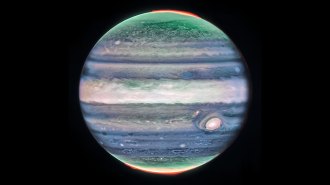 Planetary Science
Planetary ScienceJWST spotted a new speedy jet stream in Jupiter’s atmosphere
Seen in images from the James Webb Space Telescope, the high-altitude feature may help untangle the inner workings of the giant planet’s atmosphere.
-
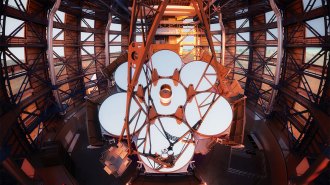 Space
SpaceHow giant mirrors are made for what will be the world’s largest telescope
The Giant Magellan Telescope is slated to probe the cosmos for Earthlike worlds and atmospheric signatures of potential extraterrestrial life.
By Nikk Ogasa -
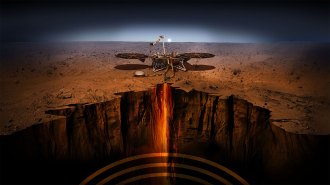 Planetary Science
Planetary ScienceMarsquakes and meteorite hits show Mars has a dense liquid metal core
Mars’ dense liquid iron core is wrapped in a layer of molten rock, which threw off previous measurements of the Red Planet’s heart.
-
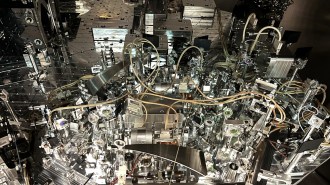 Physics
PhysicsHow quantum ‘squeezing’ will help LIGO detect more gravitational waves
An upgrade to LIGO that comes from exploiting a quantum rule known as the Heisenberg uncertainty principle makes it easier to detect spacetime ripples.
-
 Astronomy
AstronomyA rare glimpse at a relatively nearby supernova offers clues to how stars die
Thanks to its home in the Pinwheel galaxy, a favorite of amateur astronomers, researchers have monitored SN 2023ixf since shortly after it exploded.
By Elise Cutts -
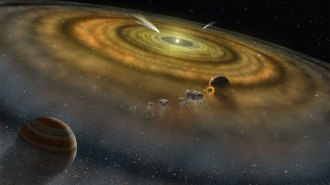 Planetary Science
Planetary ScienceGiant planet ‘destabilization’ may have coincided with the birth of Earth’s moon
New meteorite data suggest the orbits of the giant planets abruptly changed about 60 million to 100 million years after the solar system started forming.
By Bas den Hond -
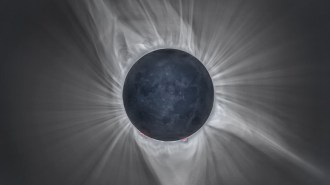 Space
SpaceHere’s how citizen scientists can help during the 2024 solar eclipse
The sun will be near the peak of its activity cycle during the eclipse on April 8, 2024, making it a great time to crowdsource solar research.
-
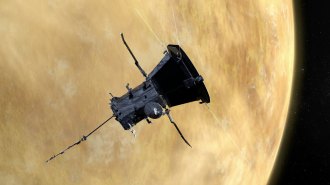 Planetary Science
Planetary ScienceHere’s another strike against Venus having copious lightning
Past data and the Parker Solar Probe’s new discovery of weird whistler waves overturn the idea that Venus’ hellish atmosphere has a lot of lightning.
By Sid Perkins -
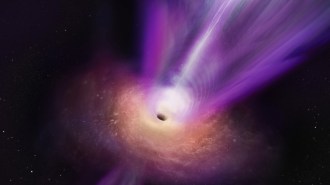 Astronomy
AstronomyThe black hole–powered jet in galaxy M87 is making stars explode
Hubble Space Telescope data show a surprising number of nova blasts along the jet of high-speed gas coming from the galaxy M87.
By Ken Croswell -
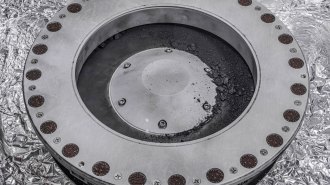 Space
SpaceNASA’s first look at a sample from asteroid Bennu reveals life’s building blocks
Scientists have begun to analyze roughly 250 grams of Bennu, which could offer insight into solar system formation and life’s origins on Earth.
-
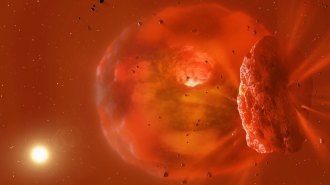 Planetary Science
Planetary ScienceIn a first, astronomers spot the afterglow of an exoplanet collision
A surge of infrared light from a remote star might have been a glow cast by the vaporized leftovers of an impact between Neptune-sized worlds.
By Elise Cutts -
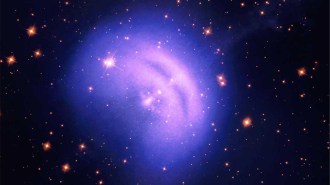 Physics
PhysicsVela’s exploded star is the highest-energy pulsar ever seen
A spinning dead star about 1,000 light-years away, in the constellation Vela, raises questions about how pulsars can emit such extreme radiation.